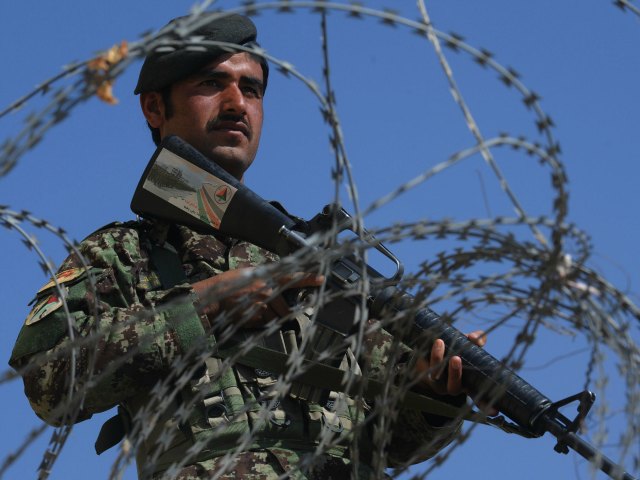Roughly half of the Afghan National Security Force (ANSF) was unable to read and write as of February 2013 despite $200 million in U.S. taxpayer funds spent on literacy training, according to a U.S. government watchdog.
The ANSF includes the Afghan National Army (ANA) and the Afghan National Police (ANP).
In an audit set to be released today, Special Inspector General for Afghanistan Reconstruction John F. Sopko states that “some command officials” responsible for the literacy training program roughly estimate “that over half of the force was still illiterate as of February 2013.”
The literacy program is administered through the U.S./NATO-led Afghanistan Training Mission/Combined Security Transition Command (NTM/CSTC).
According to officials with NTM/CSTC cited in the audit, the “low level of literacy is likely to persist through the end of the decade.”
The training mission lacks an effective strategy to transfer the literacy training program to the Afghanistan government and ensuring that the U.S.-funded efforts are sustainable in the long run, the inspector general found.
ANSF’s ability to attain the level of literacy required to be an effective force is at risk without such a strategy, and, consequently, U.S. funds are also at risk of being wasted, according to Sopko.
The goal of the literacy program is to have 100 percent of the ANSF achieve basic literacy equivalent to first-grade proficiency known as Level 1 and 50 percent attain functional literacy equivalent to third-grade proficiency known as Level 3 by December 31, 2014, when the U.S.-NATO-led combat mission ends.
When measured against the established ANSF end strength of 352,000 personnel, the literacy training program has fallen short of achieving its goal.
“If based on the current authorized ANSF end strength of 352,000 personnel, the goal may be ‘unrealistic’ and ‘unattainable,'” military officials told the inspector general.
With an attrition rate of 30 to 50 percent, Sopko found that it is unlikely that those who actually passed a literacy training level are still in the ANSF.
Sopko concludes that the literacy program “appears to have had limited impact on the actual literacy levels within the ANSF.”
The literacy training program, which began in November 2009, is delivered through three U.S. taxpayers-funded contracts with a combined value of $200 million. Two of the contractors are from Afghanistan and the other one is from the U.S.
According to the audit, the literacy program suffers from limited oversight.
“The command’s ability to measure the effectiveness of its literacy training program and determine the extent to which overall literacy of the ANSF has improved is limited,” states the inspector general.
Illiteracy, fueled by decades of conflict, is a widespread problem among the Afghan population.
“The Afghan Ministry of Education estimates that only about one-third of the Afghan population can read or write, while approximately 13 percent of ANSF recruits possess these abilities,” writes Sopko.
In the audit, the expressed views of the Afghanistan training and security transition command suggest that “literate forces are easier to train, more capable and effective, and better able to understand human rights and the rule of law.”
“Further, literate soldiers and police can account for equipment and weapons by completing paperwork and reading serial numbers,” the Afghanistan training mission believes, according to the audit. “They can also mitigate corrupt practices by tracking their own pay.”
The training mission also believes that literacy is critical to developing a capable, professional, and sustainable ANSF. A capable Afghan force is essential to preventing Afghanistan from once again becoming a terrorist safe haven after the U.S.-NATO combat mission ends in December 2014.

COMMENTS
Please let us know if you're having issues with commenting.